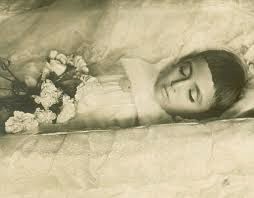
The meeting was chaired by 63 year old Professor Diarmaid MacCulloch and the first speaker was Professor Pat Thane of King’s College, London, expert in old age in English History who spoke about the representations and realities of old men and women, past and present.
Pat was of interest since one of the tasks I set myself when I started this blog in 2009, was to 'see if this country of ours is, or ever was, a country for old men.'
Pat examined three assumptions we make about old age :
Assumption number One : That people in the past rarely lived to old age.
Pat's answer was "Not true" because :
* the numbers of 60+ old men and women in England in the 1600s was 6-8%, the 1700s 10% but at the end of the 1800s it had fallen to 5%, whereas in France it was 10%.
 * there might appear to have been fewer old people because high infant mortality brought the average life expectancy figures down as seen in 1841 which was 39 years for men to 42 for women, in 1871, 44 to 49 and in 2011, 78.5 to 82.4.
* there might appear to have been fewer old people because high infant mortality brought the average life expectancy figures down as seen in 1841 which was 39 years for men to 42 for women, in 1871, 44 to 49 and in 2011, 78.5 to 82.4. However, they passed infancy there was 'quite a good chance they would get to 60 and beyond.'
Assumption number two : old people were normally cared for in the bosom of their families and so didn't need publicly funded care, whereas in our busy, mobile, selfish, individualistic society, old people are neglected and consigned to care homes and welfare services.
Pat's answer : "Not so" because :
* until the 1900s many people had no children because a higher proportion never married or had no children or their children died and even in pre-industrial Britain, even if children didn't die, they didn't necessarily stay close to their ageing parents because the young went in search of work and keeping in touch was difficult because levels of literacy and communication were slow.
* it was rare for the generations to share a home when children didn't emigrate, unless the older were very frail or the young were very poor and old people preferred to keep their independence for as long as they could to stay active. In addition, living with younger relatives isn't a guarantee of loving care at any time. as revealed in recent Japaneses studies where families stay together.
* in past old men and women might not share a home, but might live nearby with younger generation helping out around the house and preparing meals with old people reciprocating by, for example, looking after grandchildren.
* more old people today live to late ages and 3 or 4 generation families are more common than in the past and active able for example, to care for grand children and at the same time modern medicine keeps people alive in conditions of physical and mental frailty which was impossible until the recent past.
* in history older and younger people would die quickly in conditions in which they would now survive, often past the capacity of younger relatives to care for them.
Assumption number three : old people were more respected in the past than they are now.
Pat's answer : "Not necessarily so" because :
 * there's no evidence of 'automatic respect', unless old people were rich and powerful or had done something.that merited admiration and poorer old people often had a hard time.
* there's no evidence of 'automatic respect', unless old people were rich and powerful or had done something.that merited admiration and poorer old people often had a hard time. * gender and age discrimination are still deeply embedded in our culture and were only recently recognised and are now illegal in employment.
* until recently old men and women expected to be marginalised, as in health care, believing they were seen as less important by younger people and internalising the popular stereotype of people past a certain age as helpless and insignificant.
So life for old people in the past in Britain was not, in the words of the 17th century philosopher, Thomas Hobbes, 'short, nasty and brutish.' Well, at least not necessarily 'short'.




No comments:
Post a Comment